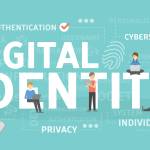Prime Minister Sir Keir Starmer has confirmed the government is looking at introducing digital ID to tackle illegal immigration.

“We all carry a lot more digital ID now than we did 20 years ago, and I think that psychologically, it plays a different part,” Starmer told the BBC.
Asked whether a new scheme could play a role in reducing the attractiveness of the UK as a destination for illegal migrants, he added: “My instinct is it can play an important part. Obviously we need to look through some of the detail.”
He did not confirm whether any new digital ID scheme would be mandatory.
Cabinet Office minister Pat McFadden visited Estonia, where the country’s advanced use of digital identity allows citizens to access government and some private services such as medical records, voting and banking.
A poll conducted among members of the Labour Party revealed that 57 percent support an introduction of a digital ID card system by the government. Digital identity, however, is still some way from broad support, with 30 percent against the scheme, according to the research.
Digital ID not “a quick fix”
The news that the government is considering a new digital ID scheme has been met with scepticism by some experts.
David Rennie, now chief trust officer at Orchestrating Identity, joined the Home Office Identity Cards Programme back in 2005. He said he “is unconvinced” by the latest proposals.
If you liked this content…
“While the UK government is under pressure to take a tougher stance on illegal immigration, a digital identity card is not the right vehicle. In fact, positioning digital ID as a quick fix to a single issue will diminish much of the wider work that’s already been achieved around digital identity – and at a significant cost.
“A mandatory ID card solution won’t address the problem the Home Office needs to solve – the ability to establish and communicate whether someone has the right-to-work in this country – because the grey economy will simply bypass it. In fact, it is already surplus to requirements, government legislation passed in June this year enables UK employers to check an employee’s legal status digitally.”
Rennie contends that instead of focusing on a national digital ID card, a more cost–efficient strategy would be to put limited government funds into meeting the needs of the small percentage of people for whom the Home Office does not yet provide a digital solution.
“Digital identity is a highly nuanced issue, and an ID card may be part of the answer, but the focus should remain on building comprehensive digital identity infrastructure and policy, to ensure all outcomes ladder up to inclusivity, adaptability, and public trust,” he said.
“The bigger question is should taxpayers’ money be used to build and operate a state run infrastructure to address the broader problems of fraud and misinformation that have grown with the adoption of digital technologies? I would argue no, the government should instead focus on governing – by supporting its own legislated Digital Identity and Attributes Trust Framework. It’s one thing trying to launch a reductive ID scheme that over-simplifies a complex set of issues, however If it fails it will be another case of one step forward, two steps back on digital identity.”
Digital ID system must focus on access, not exclusion – Liberty
Sam Grant, director of external relations at human rights organisation Liberty, said any digital ID system would pose a host of wider human rights questions.
“There are many countries that have mandatory ID systems, and it’s been shown there is no clear correlation between irregular migrant population, underground economies and ID policies,” said Grant.
“Bringing in ID cards would be a huge change for how we all interact with public services, from healthcare to welfare. Any system should allow for offline alternatives, and has to be built with a clear benefit in mind to help people access services more easily, rather than creating barriers for people and doubling down on hostile environments. We need to take a careful approach and learn lessons from other countries, and make sure there are robust safeguards in place.”







